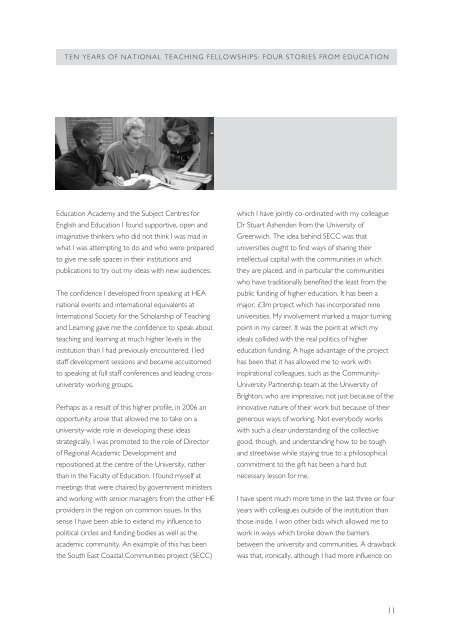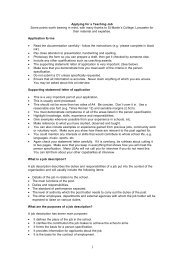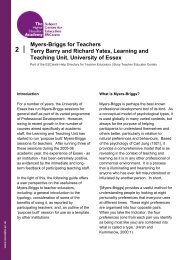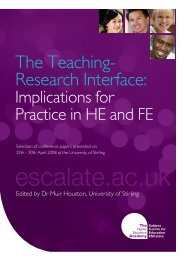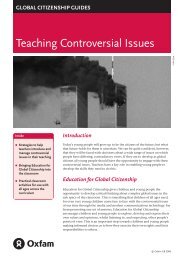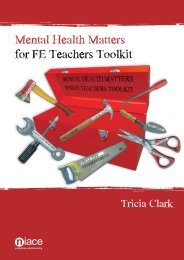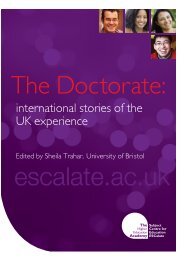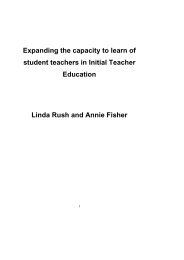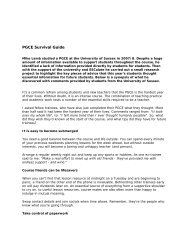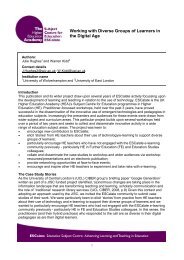pdf 4.2MB - ESCalate
pdf 4.2MB - ESCalate
pdf 4.2MB - ESCalate
You also want an ePaper? Increase the reach of your titles
YUMPU automatically turns print PDFs into web optimized ePapers that Google loves.
TEN YEARS OF NATIONAL TEACHING FELLOWSHIPS: FOUR STORIES FROM EDUCATIONEducation Academy and the Subject Centres forEnglish and Education I found supportive, open andimaginative thinkers who did not think I was mad inwhat I was attempting to do and who were preparedto give me safe spaces in their institutions andpublications to try out my ideas with new audiences.The confidence I developed from speaking at HEAnational events and international equivalents atInternational Society for the Scholarship of Teachingand Learning gave me the confidence to speak aboutteaching and learning at much higher levels in theinstitution than I had previously encountered. I ledstaff development sessions and became accustomedto speaking at full staff conferences and leading crossuniversityworking groups.Perhaps as a result of this higher profile, in 2006 anopportunity arose that allowed me to take on auniversity-wide role in developing these ideasstrategically. I was promoted to the role of Directorof Regional Academic Development andrepositioned at the centre of the University, ratherthan in the Faculty of Education. I found myself atmeetings that were chaired by government ministersand working with senior managers from the other HEproviders in the region on common issues. In thissense I have been able to extend my influence topolitical circles and funding bodies as well as theacademic community. An example of this has beenthe South East Coastal Communities project (SECC)which I have jointly co-ordinated with my colleagueDr Stuart Ashenden from the University ofGreenwich. The idea behind SECC was thatuniversities ought to find ways of sharing theirintellectual capital with the communities in whichthey are placed, and in particular the communitieswho have traditionally benefited the least from thepublic funding of higher education. It has been amajor, £3m project which has incorporated nineuniversities. My involvement marked a major turningpoint in my career. It was the point at which myideals collided with the real politics of highereducation funding. A huge advantage of the projecthas been that it has allowed me to work withinspirational colleagues, such as the Community-University Partnership team at the University ofBrighton, who are impressive, not just because of theinnovative nature of their work but because of theirgenerous ways of working. Not everybody workswith such a clear understanding of the collectivegood, though, and understanding how to be toughand streetwise while staying true to a philosophicalcommitment to the gift has been a hard butnecessary lesson for me.I have spent much more time in the last three or fouryears with colleagues outside of the institution thanthose inside. I won other bids which allowed me towork in ways which broke down the barriersbetween the university and communities. A drawbackwas that, ironically, although I had more influence on11


